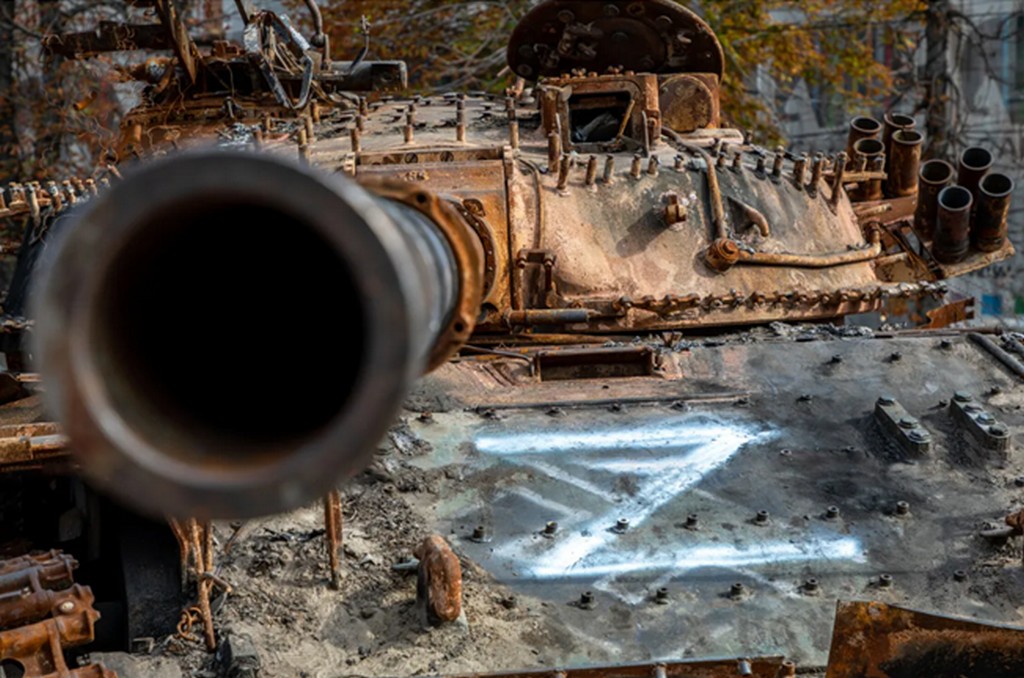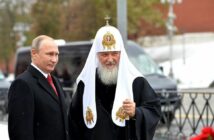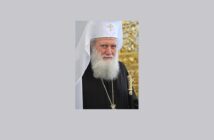Source: Public Orthodoxy
Andrey Shirin
Associate Professor of Divinity, John Leland Center for Theological Studies
In his 2006 book titled The Civil War as a Theological Crisis, historian Mark Noll argued that the American Civil War of the 19th century was, among other things, a crisis not only of differing biblical interpretations but of the very concept of the Bible. The South and the North interpreted the Scriptural outlook on slavery very differently, with Southern interpretation being more straightforward and the Northern one more nuanced. Therefore, at issue was the concept of the Bible as a clear source that could offer transparent guidance in important matters. The respective sides could not resolve their differences with arguments over the Bible, so they had to resort to arms. Those with the more nuanced interpretation ended up winning both on the battlefield and in the court of public opinion. The notion of Scripture as a clear book offering guidance easy to understand has never recovered.
The main theological issue interwoven with the current Russian-Ukrainian conflict is the relation of church and nation, particularly the Byzantine concept of symphonia, or harmonious relations between church and state, embraced by Moscow Patriarch Kirill and the Russian Orthodox Church. According to this concept, the state is responsible for civil governance, and the church deals with spiritual issues. But, unlike the Western concept of separation of church and state, these realms cannot be separated. Because they interpenetrate, the church cannot completely absolve itself from politics and other civil issues, and the state cannot totally abandon spiritual matters. So, church and state exist in relations of mutual support and reinforcement. That does not imply religious uniformity in the nation. That does imply, however, the leading position of a national Orthodox Church in relation to other religious bodies.
In January 2019, the Patriarch of Constantinople granted autocephaly to the Orthodox Church of Ukraine (OCU), a newly formed ecclesiastical body. This decision led to vitriolic conflict between the Constantinople and Moscow patriarchates. According to Moscow, Constantinople lacked jurisdiction to take this step, as modern Ukraine became the Russian church’s territory centuries before, and the ecclesial bodies that formed the OCU were schismatic.
In rejecting the legitimacy of the OCU, the Moscow Patriarchate held a symphonic position, or a position parallel with and reinforcing the stance of the Kremlin. In the run-up to the war, the Russian government’s position was that Ukraine was a state lacking historical legitimacy. The Russian Orthodox Church, for its part, maintained that the OCU lacked legitimate apostolic succession. The only legitimate church body the Moscow Patriarchate held was the Ukrainian Orthodox Church (UOC), an arm of the Russian Orthodox Church. In one of his addresses just before the war started, Vladimir Putin, Russia’s president, cited the common Orthodox faith as an indication that Russians and Ukrainians were, in fact, one people.
But after the commencement of military hostilities, metropolitan Onufriy, head of the UOC, condemned the war in unambiguous terms. In his first response, he likened the war to Cain’s murder of Abel. Meanwhile, Patriarch Kirill lent his support to Putin’s decision to begin a “special military operation.” The Patriarch went so far as to state that Russian soldiers killed in the war will have their sins forgiven and to call Russia the pillar and foundation of truth, a designation reserved by the Scriptures for the church only.
Last May, the UOC severed its relations with the Moscow Patriarchate. Kirill responded with a statement expressing his “understanding,” given the circumstances. There are still accusations that the UOC did not really break the ties to the Russian church, as the Moscow Patriarchate still lists the UOC as a part of the Russian church on its website. Be that as it may, it is hard to see how the UOC can remain a part of the Russian church going forward.
Noll, the church historian, pointed out that both World Wars of the last century had theological consequences. In his words, “There would have been no dialectical theology of neo-Orthodoxy from Karl Barth without World War I and no “theology comes of age” from Dietrich Bonhoeffer without the Hitler terror.” To that we can add that World War I dealt a blow to the optimistic view of human nature, again theologically grounded, and World War II has inflicted considerable damage to natural theology, which was used by German Christians to justify their support for Hitler. By contrast, the North American Civil War of the 19th century did not produce any positive theological developments.
Will the Russian-Ukrainian war produce major theological breakthroughs? Time will tell. It is apparent that the Russian Orthodox Church is likely to come out of this war as a losing party. It looks like most of the Ukrainian territory will remain under Kyiv’s control. Consequently, the ROC is unlikely to regain most of the parishes it lost when the UOC declared independence. This number is by no means small. As a result of the UOC decision, the Russian church lost 11,000–12,000 churches. Out of those, 400 churches in the Crimea came under the direct control of the Russian church. Several hundred churches in the part of Ukraine captured by Russia will likely do the same. But the vast majority of these churches are gone.
This devastating reality is bound to prompt soul-searching in the Russian Orthodox Church. Was Patriarch Kirill right in tying himself so closely to the current Russian government and its decision to start military hostilities? Was he right in embracing symphonia as his guiding approach for relating to Russian authorities?
Symphonia was the model practiced by Byzantine emperors. Until recently, though, it seemed destined to remain in the past forever. Thirty years ago, Stanley Harakas, a preeminent Orthodox ethicist, said that there are no presuppositions for the implementation of symphonia as a model of church-state relations today. The idea of symphonia, said Harakas, is no more than a fossil of antiquarian interest.
Harakas was wrong.
In one of his earlier speeches after being elected Patriarch of Moscow back in 2009, Kirill declared symphonia his ideal model for church-state relations. He stipulated this model could not be replicated in modern Russia. After all, the church-state separation is still enshrined in the Russian constitution. Even so, said Kirill, the spirit of symphonia should guide our thoughts and actions as we are building a model of church-state relations. This spirit opens a remarkable potential for the development of these relations, whereby church and state will refrain from interference with each other and, at the same time, build a broad system of cooperation.
Now that these principles have led the Patriarch to take stances that had such disastrous consequences, a major rethinking of the idea of symphonia seems to be in order. Whether it is in fact, reevaluated by Russian Orthodox leaders will depend on many factors. There are powerful forces in the Russian Orthodox Church who are perfectly happy to have cozy relations with national and regional leaders of various levels. But the sheer fiasco of losing such a big portion of the church calls for a course correction.
The concepts of church-state relations dominant in the West are less than ideal. While ensuring greater freedom of faith and worship, they tend to marginalize the church from the public square. One can hardly give religious reasons for public arguments and be taken seriously on this basis alone. Religious traditions, including Christianity, are being pushed out of Western public life.
As a Russian national, I hope my country of origin will eventually contribute to presenting a viable alternative to Western secularism. Symphonia, at least in its current form, cannot be the basis of such an alternative.
Andrey Shirin is Associate Professor of Divinity and Director of Transformational Leadership at John Leland Center for Theological Studies in Arlington, Virginia, where he researches and teaches at the intersection of theology, leadership, and public life. He has written on the religious of Russian – Ukrainian war for Washington Examiner, Christianity Today, and Baptist News Global. He has been interviewed on these subjects by Christianity Today and Wall Street Journal.




